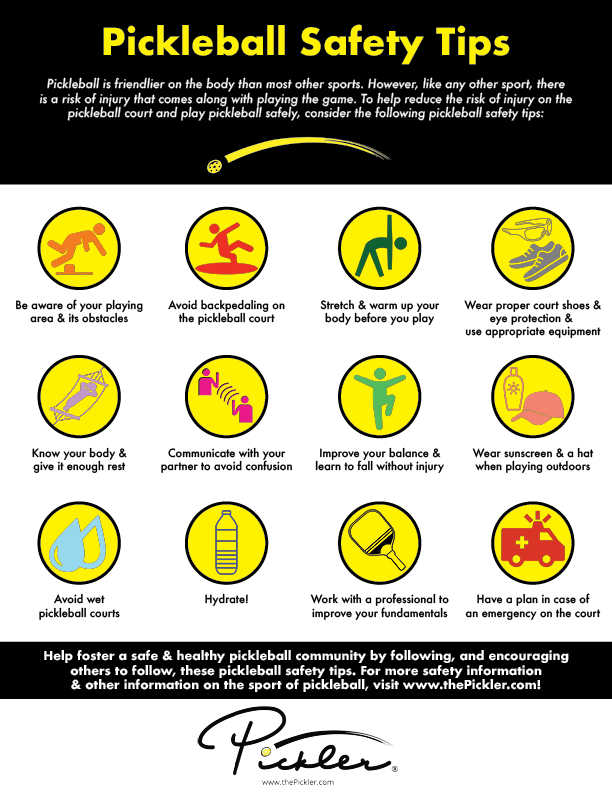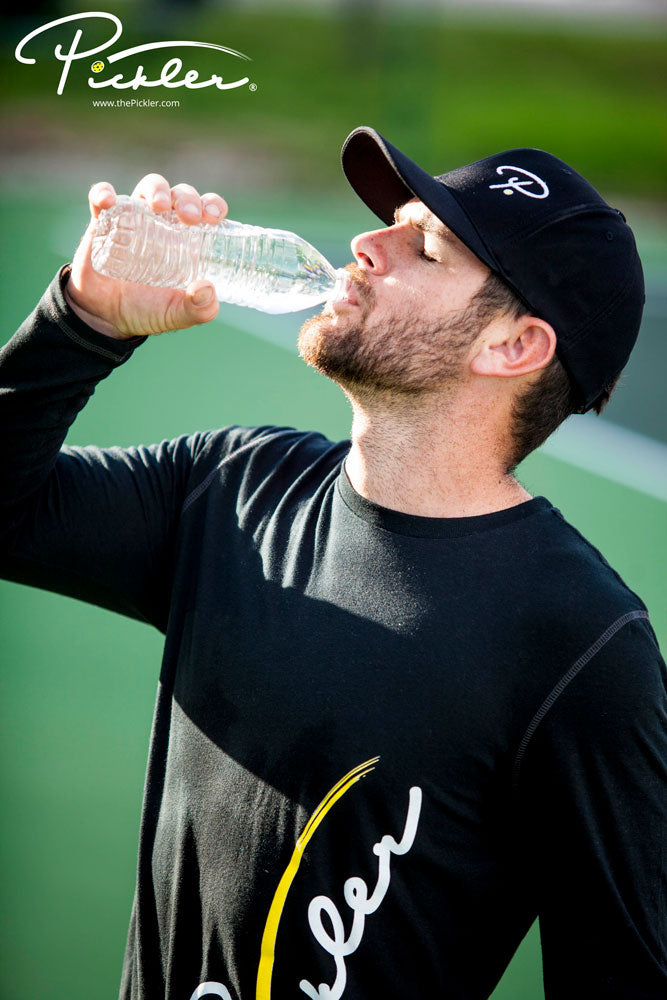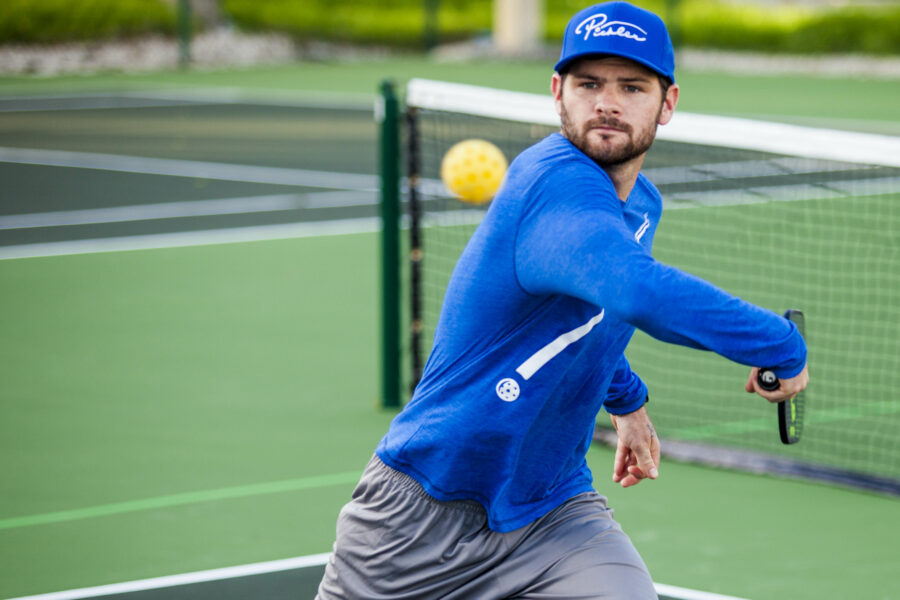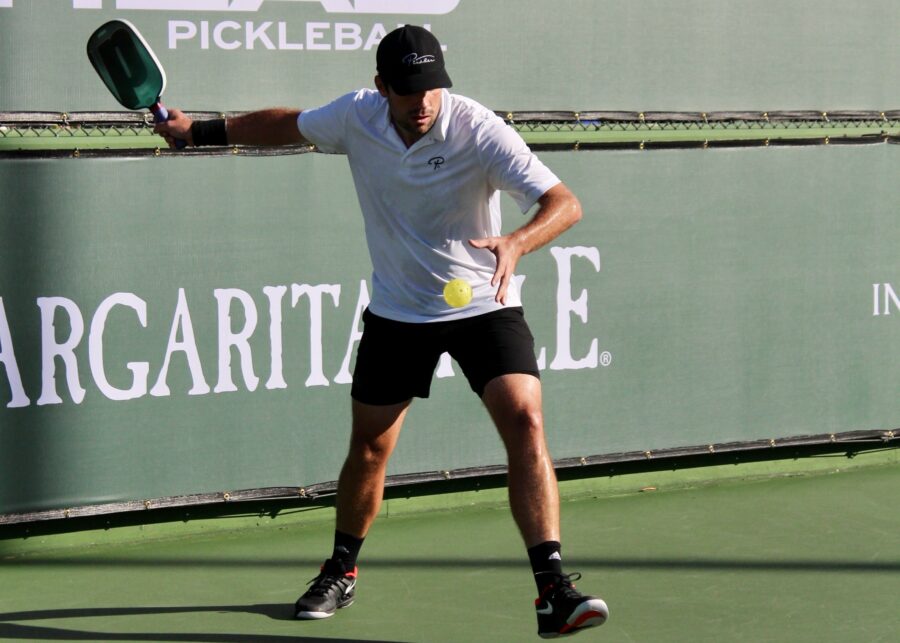The sport of pickleball is considered friendlier on the body than other sports, such as any contact sport, like football or basketball, or even tennis. However, like any other sport, there is a risk of injury that comes along with playing the game. To help reduce the risk of injury on the pickleball court and play pickleball safely, consider the following pickleball safety tips:

- Be Aware of Your Playing Area and the Various Obstacles – Pay attention to your playing area when playing pickleball. Not all pickleball courts are created equal. Sometimes, there are obstacles, such as bleachers, light posts, or fences, that are close to the pickleball court. Pay attention to these obstacles and play within the limitations of your playing area.
- Do NOT Play on Wet Pickleball Courts – Wet pickleball courts are slick, which will likely result in a player falling on the court. Avoid wet pickleball courts, and wait until the pickleball courts are dry. To test whether a pickleball court is wet, put your weight on the toe of your shoe and twist with some strength. If water rises or moves when you twist your foot, the pickleball court is wet and is unsafe for play.
- Learn from a Professional – A professional pickleball coach or teacher can help you maintain good fundamentals and habits, which will help you avoid injuries on the pickleball court. For in-depth pickleball coaching to improve your skills and help you prevent injury, purchase Pickler’s video lesson collection called My Pro Pickleball Coach, which is a fraction of the price of one clinic or lesson, and features over 140 video lessons (over 7 hours of instruction!).
- Pay Attention to Your Body – Pay attention to what your body is telling you. Do you need a day off to let your body recover? Do you have an injury that is not fully healed? Take time away from the pickleball court if necessary because, if you do not listen to your body, you will likely face an injury that will keep you off the pickleball courts for an even longer period of time.
- Know Your Limitations – Understand what your body can and cannot do on the pickleball court. A 20-year-old will likely have less limitations on the pickleball court than a 60-year old. Respect your body and play within yourself, as it is better to lose a point on the pickleball court, than to dive or fall and hurt yourself in a manner that results in no pickleball for weeks or months.
- Improve Your Balance – Better balance will help you stay upright and avoid falls and tumbles when chasing the pickleball around the pickleball court. So, work on improving your balance with various cross-training activities, such as walking, running, biking, weight training, Pilates, and yoga.
- Avoid Backpedaling – Backpedaling, especially when standing upright, is one of the most common causes of injury on the pickleball court. This is because backpedaling often results in pickleball players losing their balance and falling (likely falling backward and hurting their head). Avoid backpedaling! Instead, opt to drop step so that your chest is facing the direction that your feet are moving.
- Learn to Fall Without Injury – Sometimes, falling just happens on the pickleball court, no matter how careful you are or how great your balance is. In these situations, learn to fall without injury. To fall without injury essentially means (1) tuck and roll to avoid a hard landing and absorb the brunt of the impact, and (2) protect your sensitive areas, like your head, by covering your head with your arms.
- Communicate with Your Partner – Communication with your pickleball partner on the court is key on multiple levels. For instance, communicate your limitations to your partner (e.g. are you able to run back for a lob?), and communication on every shot who is going to hit the pickleball. Communication will help avoid collisions and other confusion on the pickleball court. Also, be sure to communicate with your partner and your opponents (and even yell to stop the point) if any obstacles or dangers are on the pickleball court, such as a stray pickleball.
- Wear Proper Pickleball Shoes – Proper pickleball shoes and other attire will prevent injury on the pickleball court by providing support for pickleball-related movements (such as side-to-side movements and lots of small steps on a hard court). Running shoes are better than sandals (which are definitely not appropriate), but court shoes are better than running shoes, as court shoes are designed to support lateral movements, while running shoes are designed to support running forward.
- Use Proper Equipment – Check to make sure that you are using proper pickleball equipment that is suited for you. If you are not using proper pickleball equipment, it could lead to unintended injuries on the pickleball court. For instance, if your pickleball paddle is too heavy, it could lead to painful “tennis elbow.”
- Stretch and Warm Up – Prior to starting pickleball play, stretch and warm up properly to loosen up your muscles. A proper stretch and warm-up will help prevent injury, such as a pulled muscle. If anything, focus on the high-risk areas of injury on the pickleball court, which include the lower extremity, upper extremity, and head/neck (for further information, see Pickler’s blog on What Are the Most Common Pickleball Injuries?). Also, consider stretching after you play and cooling down properly to further prevent injury.
- Consider Wearing Eye Protection – Eye protection is not mandated on the pickleball courts; however, it is highly recommended. Consider wearing eye protection to protect high-speed pickleballs from hitting your eye area or eye socket.
- Hydrate! – Prior to, during and after playing pickleball, be sure to hydrate. Playing pickleball will likely cause you to sweat, so it is important to replace the electrolytes lost on the pickleball court and keep yourself hydrated.
- Protect Yourself from the Sun – If you like to play pickleball outdoors, remember to protect yourself from the sun. This includes wearing sunscreen, wearing a hat, and finding shade when you can.
- Consider Consulting with Your Doctor – If you are worried about your own personal limitations on the pickleball court, or have nagging aches and pains, consider consulting with your doctor. Your doctor can help you understand any risks you may have on the pickleball court, as well as help you implement measures to prevent injury.
- Have an Emergency Plan in Place – At times, injury is unavoidable on the pickleball court, as accidents sometimes just happen. In the event of these unfortunate situations, be sure to have a plan in place on how to handle an emergency on the pickleball court.
- Teach Others Good Habits – Encourage others to exercise good safety habits on the pickleball court. Pickleball is most commonly played in doubles, so your safety could depend on how serious your partner is about safety on the pickleball courts. Plus, pickleball is a social sport with a strong sense of community. It is important to look out for each other and foster a healthy community of Picklers!
Do you follow, and encourage others to follow, these pickleball safety tips? Do you have any safety tips to add?



